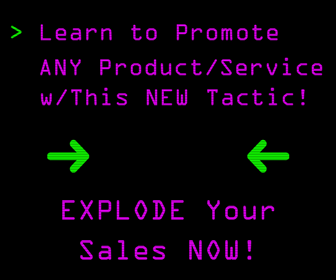Sometimes, brands are consistently funny and on point on social media.
Wendy's comes to mind as a great example.
It's tempting to try to emulate that kind of thing.
After all, it gets a lot of attention when Wendy's posts a clever meme or makes a quip on Twitter.
There's a certain particular kind of “snarky millennial humor” at play.
This is surprisingly tough to pull off.
You kind of have to really have a “feel” for the humor and for the online culture surrounding it. If you're out of touch, you're going to fall on your face.
But do you really even need to try to be funny?
It's certainly a valid approach to social media marketing, but it's far from the only option. And there's a really important question that you need to ask:
Does my audience want to see memes and jokes from a company like mine?
In a lot of cases, the answer is actually “no.” That's actually not what people tend to go for.
A recent blog post from TopRank Marketing explores this phenomenon, explaining that what it really comes down to is understanding your specific audience.
Funny Is Good, But It Isn’t Everything
Infusing a little humor into a brand is a good way to express personality. It lets people know that there are actual human beings behind the brand, seeking to entertain just as much as they inform.
As a once and future comedy writer, I’m an advocate for humor in marketing.
But we should make sure the humor is not all that we’re bringing to the table.
Sprout Social found that while 3 in 4 consumers appreciate humor from brands, being funny was 4th on the list of what consumers really want from brands on social media:
[image source: Toprank Marketing Blog]
The far-and-away winners are honest, friendly, and helpful.
If you have these three covered, then you can add in the humor. On the other hand, if you’re not honest, friendly, or helpful, no level of funniness will make up for the lack.
It’s also worth noting how far down the list “trendy” and “snarky” are. There’s no shortage of brands trying to be edgy and au courant.
But it looks like less than half of consumers want their brand to be the quip-slinging cool kid from a 90’s sitcom.
The bottom line: Humor is a welcome trait for a brand, but mean-spirited or edgy humor is likely to turn customers off (even if it lands you an AdWeek shoutout).
And if you’re not being honest and helping people, no amount of humor can save you.
Know Your Audience
Social media is not a homogenous audience that’s the same for every brand. It’s a platform for connecting with your particular most-valued consumers.
How your brand approaches social media, then, should be a byproduct of how your audience wants to interact with your brand.
These preferences can vary widely across demographics.
For example, 74% of Gen X and Baby Boomers said they found it annoying when a brand uses slang. But only 59% of Millennials shared that sentiment. Millennials are also far more tolerant of brands making fun of competing brands:
[image source: Toprank Marketing Blog]
How your brand should express personality on social media is dependent on your target audience. If your demographic still uses words like “hip” and “groovy,” it’s probably not hip or groovy for your brand to use them.
However, if your target audience thinks things are “totes adorbs” and “can’t even,” you stand a better chance of connecting with slang.
It’s vital to find the intersection of your brand personality with your audience preferences, and let that drive how you present the brand on social.
You can learn more about how to position your brand on social media over at Toprank Marketing Blog.
CHALLENGE Yourself to Profit!
Free Download: Build Your Profit-Generating Online Business With This Free Blueprint
Sign Up, follow the easy steps and You'll get the tactics, strategies & techniques needed to create your online profit stream. It's free!





